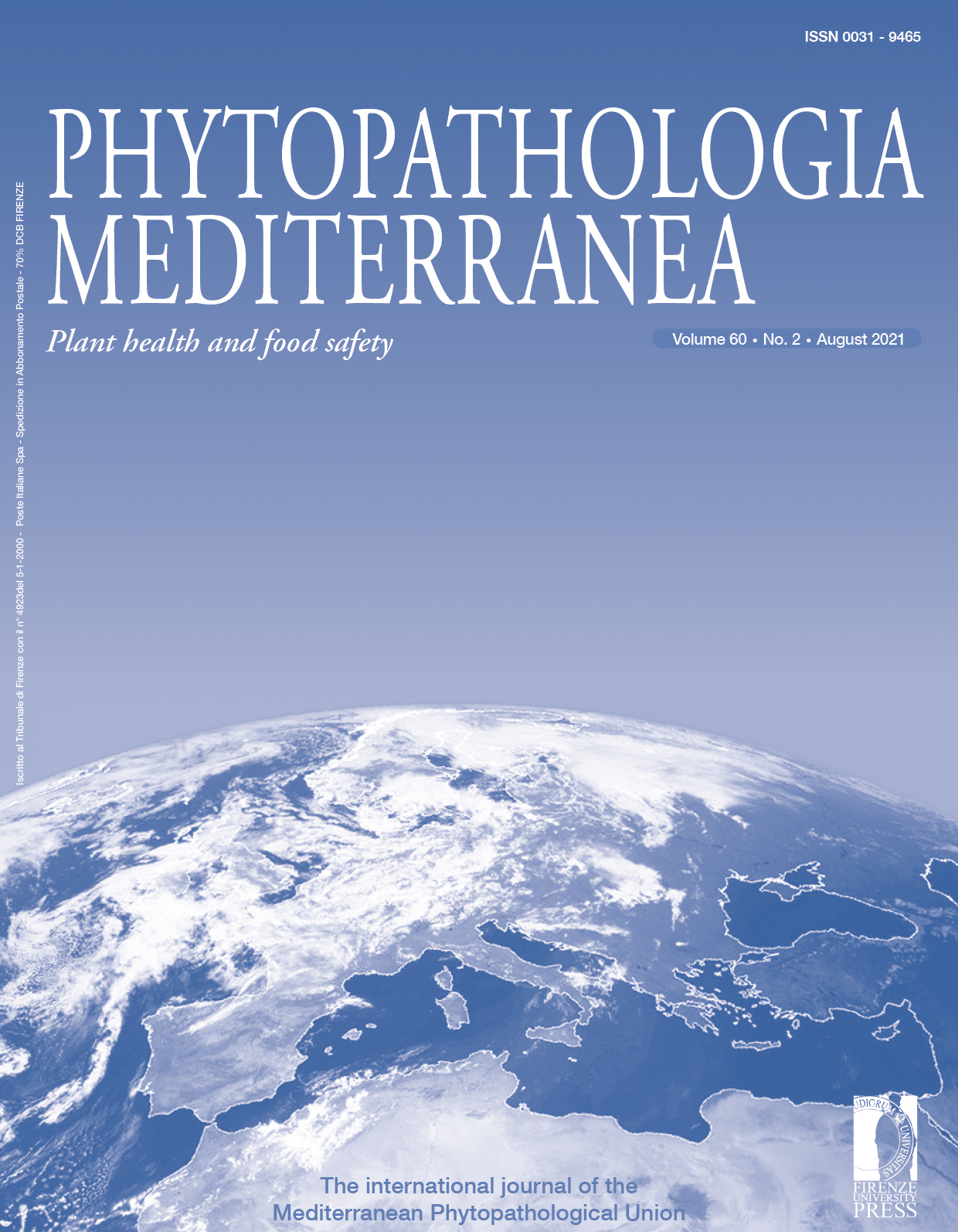Published 2021-09-13
Keywords
- Nectriaceae,
- morphological characteristics,
- phylogenetic analyses,
- Vitis vinifera
How to Cite
Abstract
Grapevine trunk diseases (GTDs) are the most destructive diseases in grape-growing regions worldwide. Black foot is one of the important GTDs affecting young vineyards and nurseries. This disease has not been reported in China. During 2017 and 2019, field surveys were carried out in the Guangxi, Hebei, Ningxia, Shanxi, and Xinjiang provinces of China. Incidence of plants with black foot symptoms was 0.1% to 1% in the surveyed vineyards. Plant samples with poorly developed shoots and canes, chlorotic leaves, and necrotic trunks or roots were collected from the five provinces. In total, 50 fungal isolates were obtained from symptomatic tissues. Based on morphological and multi-gene phylogenetic analyses, five species were identified as Cylindrocladiella lageniformis, Dactylonectria torresensis, D. macrodidyma, D. alcacerensis and Neonectria sp.1. Pathogenicity was assessed using young, healthy detached green shoots of grapevine ‘Summer Black’ and potted 3-month-old ‘Summer Black’ cuttings. Inoculated detached shoots developed necroses after 7 d, and inoculated cuttings after 80 d. Fungi were re-isolated from necrotic lesions. Among the five species, D. macrodidyma was the most aggressive. This is the first report of C. lageniformis, D. torresensis, D. macrodidyma, D. alcacerensis, and Neonectria sp. 1 associated with black foot in China. This study has enhanced knowledge of the fungi associated with black foot in China, and will assist development of control measures for this disease.






